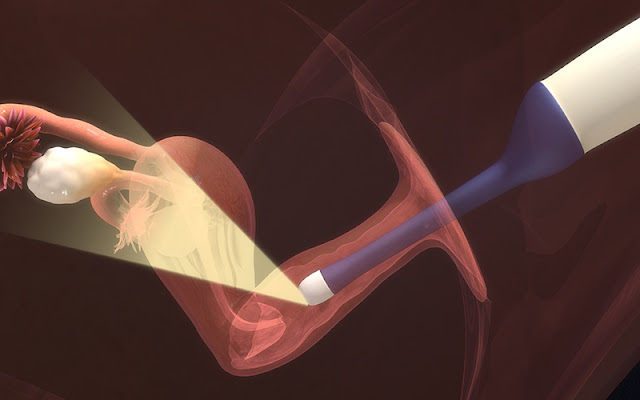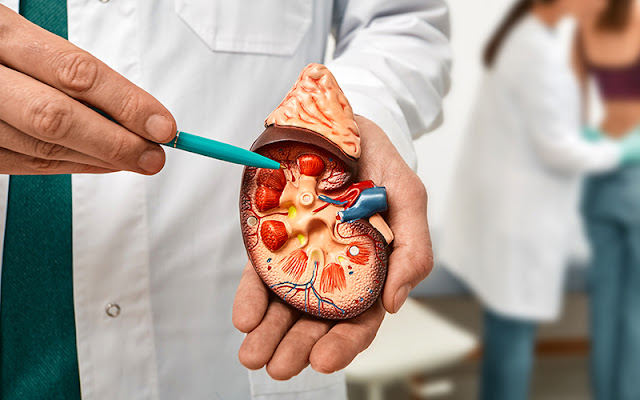Chest Pain Demystified: When to Worry and When to Relax with 5 Simple Lifestyle Modifications
Listening to your heart can be such a tricky situation. Whether it is because of chest pain, gastric juices, or simply when you have a heartbreak! (Nooo!)
An expert cardiologist can’t help much with the last one, but for all the factors that contribute to chest discomfort. Here we are dissecting our beloved and vital organ – the heart and pain associated with it. It is vital to understand when to worry and when to relax as there can be not-so-serious signals the body might give off. Further, it is also crucial to know what lifestyle modifications can be made so as to improve longevity in your life.
The Significance of Chest Discomfort
Your heart is like a diligent guard, constantly keeping watch over your health. Sometimes, it decides to sound an alarm in the form of chest discomfort. But not every sign could be a fleeting ache, meaning it is vital to understand your body's way of conveying a probable underlying serious condition.
While not every chest twinge spells catastrophe, some could be early signals of a potential issue. Ignoring these signals is like letting your car's "check engine" light stay on; it's best to address it sooner rather than later. So, whether you're relaxing at home, strolling in the park, or reminiscing with friends, don't brush off chest pain – give it the attention it deserves.
Types of Chest Discomfort: Uncovering the Clues
Alright, let's get down to the nitty-gritty of chest pain, symptoms, and treatment. Remember, your heart whispers, so it's crucial to decipher those clues. Those clues are hiding behind the types.
1.Angina Pectoris: The Squeezing Sensation
Meet Angina– it's like your heart's way of saying, "Hey, slow down a bit!" Imagine a moment of pressure or squeezing, tightness in your chest, often accompanied by a feeling of fullness or uneasiness, palpitation, or excessive sweating. It might even radiate to your arms, jaw, or back.
Angina can come in two forms: stable and unstable.
Stable angina usually shows up during physical exertion or when you're under emotional stress. But then there's unstable angina – this one's a bit more serious. It can strike even when you're at rest and might not follow a predictable pattern.
The best way to relieve chest pain in such cases is ‘Relaxxx, take it easy.’ Also, there are over-the-counter medicines such as Aspirin.
Angina symptoms can gradually get worse from 2 to 5 minutes, however, usually lasts less than 15 minutes. If you experience this, consider it your heart waving a red flag (read emergency), urging you to seek chest pain doctor’s help.
2.Heart Attack (Myocardial Infarction): When Silence Gets Loud
Now, let's talk about the big one – the heart attack. It's like the fire alarm going off, signaling a potential emergency. You might feel a sudden, intense pressure, or like an elephant's taken a seat on your chest. Shortness of breath, nausea, and lightheadedness could chime in too.
But sometimes, a heart attack doesn't create as much drama as they show in movies. It might come in a sneaky way with subtle symptoms like distress in your jaw, neck, or back. Or even in the form of unusual chest pain or no pain.
If chest pain is not relieved even after resting, and or use of aspirin in 10 to 15 mins, STOP ANY PHYSICAL ACTIVITY and call for an AMBULANCE!
IT’S A MEDICAL EMERGENCY!!!
But How To Differentiate the Chest pain from False Alarm
Sometimes, chest discomfort isn't about your heart doing a tap dance. Digestive issues, muscle strains, gall bladder issues, Pleuritic, or even stress or anxiety can throw their hats into the ring, posing chest pain. This is where your detective skills come into play.
If you're ever in doubt, don't hesitate to reach out to the best cardiologist near you. Alternatively, you can also reach out to the nearest hospital and confirm with ECG. They will distinguish between the real deal and the clever imitators. Also, why be sorry when one can be safe?
How to identify who is prone to Chest pain?
Age gracefully, they say – and that's true – but as the candles on your birthday cake increase, so can the potential risk factors for heart-related concerns.
Let’s meet those Risky Factors:
Age isn't the only player in this game; there are a few other risk factors that could tag along such as:
High blood pressure
High cholesterol
Diabetes
Family history of heart disease
Poor lifestyle choices like consuming saturated fats, smoking, and lack of exercise
Having stated the above, let’s not haste to make an assumption that people of more than 55 age fall under the riskiest bracket for cardiovascular diseases (CVDs).
India is particularly facing not only the high burden of cardiovascular diseases (CVDs) but also the effects of it on the most productive workforce aged i.e., 35-60yrs.
The death rate from CVD is expected to rise by 103% in men and by 90% in women from 1985 to 2015.
Lifestyle Modifications for Preventing Chest Pain
Imagine you are the movie director and your heart is the protagonist. Now start penning a healthy heart tale or should we say a blockbuster-worthy performance? Let’s break it down to give all the care, love, and attention it deserves!
1.The Menu Makeover
Consider this your heart's culinary red carpet. Swap out saturated fats for heart-healthy fats found in avocados, nuts, and olive oil. Load up on colorful fruits, veggies, and whole grains, and show trans fats and excessive salt as the exit sign.
The effects of CVDs risk factors spread deeper than we see. According to National Family Health Survey-3 (NFHS-3), covering 1,56 ,316 individuals in India, showed self-reported data on consumption of fruit and vegetables, and reported that half of the population in its survey consumed zero or only 1 serving of fruit in a week.
2.Let’s One, Two, Cha-Cha-Cha
Ah, the heart-pumping action scenes. Aim for at least 150 minutes of moderate exercise each week. Whether it's dancing, brisk walking, or yoga – find what makes your heart sing.
Bonus: exercise is a fantastic stressbuster, and a happy heart loves that.
3.Stress Less, Love More
Speaking of stress, let's keep that villain at bay. Practice relaxation techniques like meditation, deep breathing, or simply indulging in a hobby you adore. Surround yourself with a strong support system of family and friends – heartwarming connections do wonders.
4.No Smoke, No Joke
Cutting the smoking act from your script is a star move. Smoking harms your heart in unimaginable ways. If you're a current smoker, consider this your cue for a graceful exit from that habit. Your heart will thank you for years to come.
Smoking prevalence is attributable to CVD and mortality. It is found to be higher among men (24%) than among women (3%), and smoking among individuals with less-than-primary education is higher for both sexes (37% and 4% for men and women, respectively).
5.Catch Those Zzz's
Here's where your heart takes a delightful nap – make sure you're getting 7-8 hours of quality sleep each night. Your heart rejuvenates as you snooze, and a well-rested heart is a happy one.
Conclusion:
Remember, knowing your risk factors doesn't mean you're destined for a heart-related plot twist. It simply means it's time to take a proactive approach to the path where your heart is smiling all the way in your balcony, park, kitchen, restaurant, etc.
Regular check-ups, adopting heart-friendly habits, and having open conversations with your chest pain specialist doctor can keep your heart pumping at the right pace and way.
Tell us what precautions you have had taken in case of chest pain.



Comments
Post a Comment